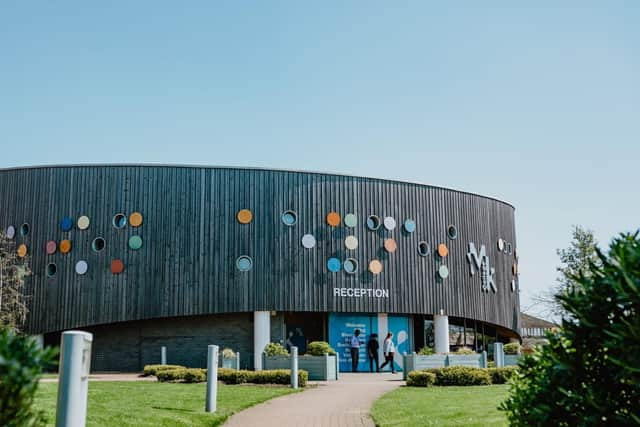Prisoners in Ian Huntley's 'monster mansion' jail achieve stunning 100% pass rate in GCSEs, thanks to Milton Keynes College
and live on Freeview channel 276
Inmates who rub shoulders with Ian Huntley and Wayne Couzens in one of the UK’s highest security prisons have achieved “sparking” GCSE results though Milton Keynes College Group.
The college tutors run special sessions at Frankland Prison in County Durham, which is known as ‘Monster Mansion’ due to the number of high profile killers and rapists behind its bars.
Advertisement
Advertisement
It is one of 19 jails across England where college provides education services under a Prison Education Framework (PEF) contract.


At Frankland, it was the first time GCSE courses has ever been offered at a high security establishment and 16 inmates applied, sat through an interview and took a skills test before they could enrol.
They had to complete GCSE English with just a single year of study consisting of one three-and-a-half-hour session per week, with no internet access. But despite this, they achieved 100% pass rate in GCSE English, with 78% of them achieving grade C (5) and above.
This was almost three times as many as in further education colleges around the country.
Advertisement
Advertisement
The jail is currently home to Sarah Everard’s killer Wayne Couzens and Soham murderer Ian Huntley, who will not be considered for release until 2042.
Other notorious inmates have included Levi Belfield, rapist Delroy Grant, the late killer GP Harold Shipman and serial killer Peter Sutcliffe
Jo Watmore, education manager for Milton Keynes College at HMP Frankland, described the GCSE results as “sparkling”.
She said: “We had eight prisoners in the main part of the prison and eight were vulnerable prisoners, so we had to run two cohorts. We also had to ask the prison service not to transfer them elsewhere for a year, so their work wasn’t interrupted half way through.
Advertisement
Advertisement
"Most are serving long or full life sentences but now they can progress to be mentors, learning assistants or even move on to a degree – it’s all about enabling a career in custody.”
This month, thirty prisoners are enrolled on GCSE courses in English and now maths.
Jo said: “People often ask me what’s the point of giving classes to people who are not going to be released for years if at all... I think their punishment is being locked up and this is about providing meaningful, purposeful activity for some of the hardest to reach people in society.
"Education is a way to help them change their mindset and change the way they view themselves and society, and after all, the majority do get out eventually and have to rejoin the community. Studies have shown education helps prisoners become more settled, less aggressive and less likely to self-harm.”
Advertisement
Advertisement
“I’m so proud of not just the learners but also the teaching staff who have to take huge credit for these results in really tough circumstances.
"People can spend many years in prison, so telling them, we’re not only going to lock you up, but there will be little meaningful for you to do for the next few decades just seems the wrong way to go. Education surely has to be the better way. At Milton Keynes College Group we are committed to providing Fairer Futures for all, and that includes people in prison.”